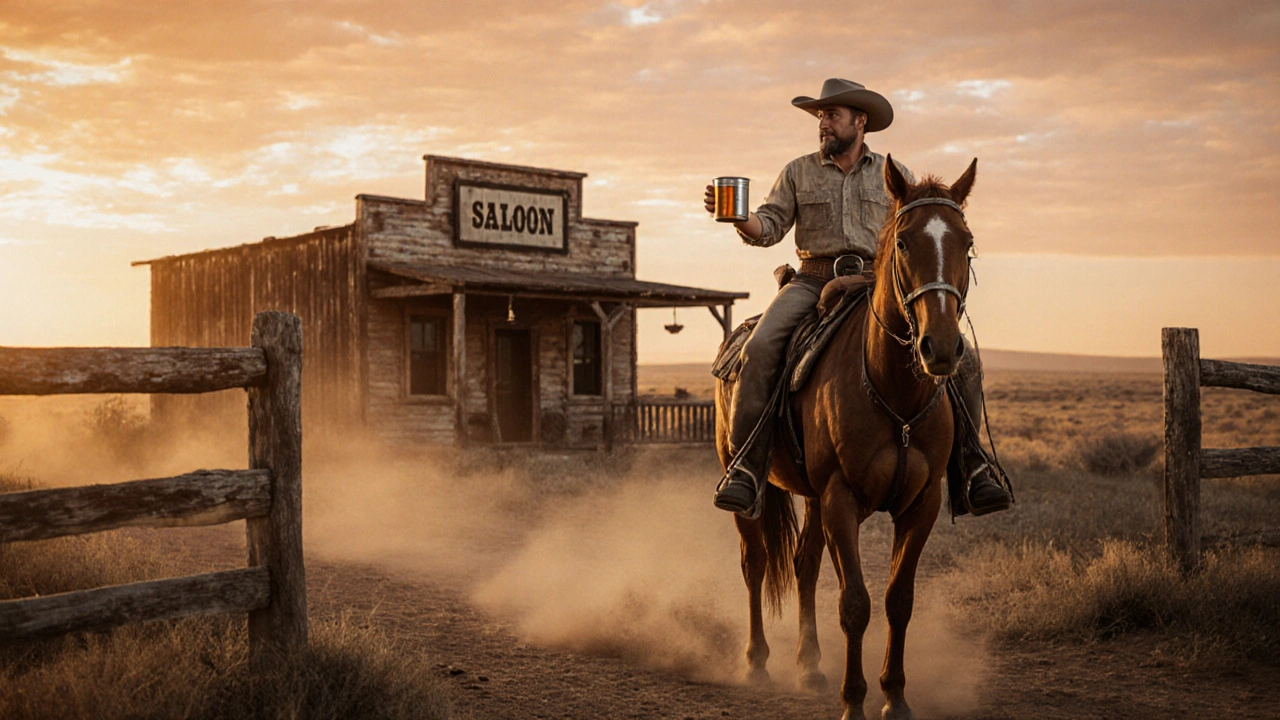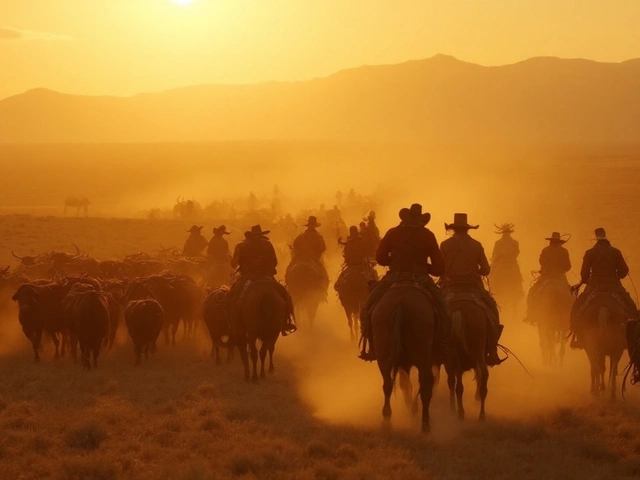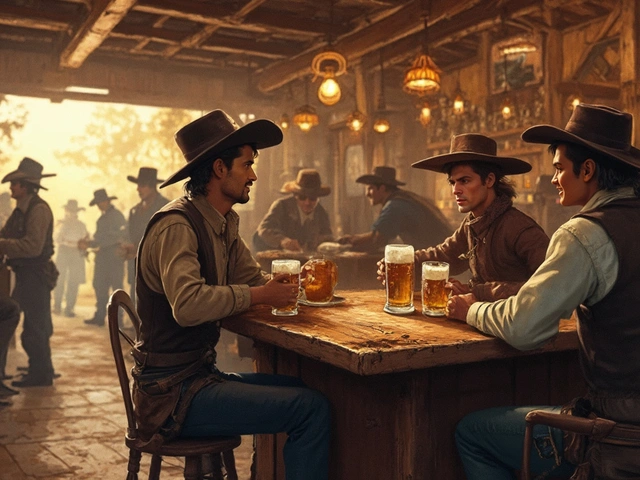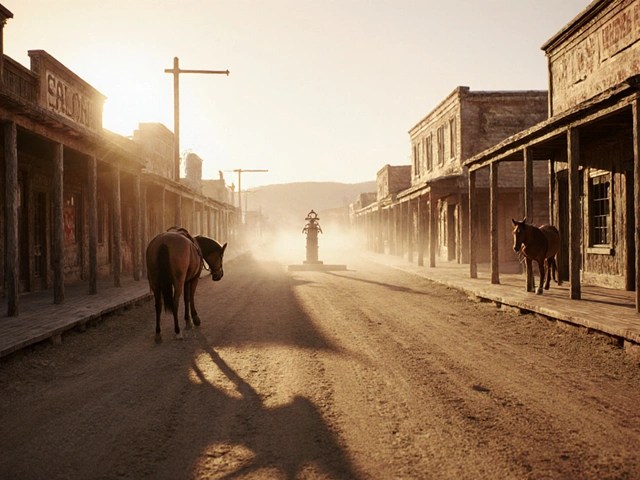Do Cowboys Get Paid? Earnings, Jobs & History Explained
September 22 2025Beer in the Wild West
When you hear the word Beer, a fermented drink made from malted grains, hops, water and yeast. Also known as brew, it has been a social staple from dusty saloons to modern ranges.
That same drink pops up in cowboy slang, the unique vocabulary cowboys used to describe everyday items, emotions and habits. In the Wild West, the frontier era of the late 19th century American West a cold mug was more than refreshment – it was a bargaining chip, a morale booster, and a reason for a night’s story around the fire. The frontier culture that grew around cattle drives, mining towns, and railroads gave beer its own nicknames, like “sarsaparilla’s bitter cousin” or simply “the hard sarsaparilla.” These terms survived because they captured the rough‑and‑ready spirit of the time.
From Saloon Talk to Modern Range
Saloon owners quickly learned that a well‑stocked bar kept cowboys coming back after a long day on the trail. That’s why you’ll read about “tin cups” and “suds” in old letters – they were shorthand for the fuel that kept crews moving. The language wasn’t random; it reflected the practical mindset of people who measured everything in miles, hours, and daily rations. When a cowboy said he’d “wet his whistle,” he meant he needed a quick sip of beer to stay sharp for the next cattle drive.
Fast forward to today’s shooting ranges at Piney Woods Shooting, and the same social function remains. Whether you’re loading a .45‑70 for a bolt‑action challenge or a .38 Special for a cowboy‑action match, a cold one after a session feels just as rewarding as a saloon shot in Dodge City. The modern shooter still uses the term “brew” in conversation, echoing the same camaraderie that once echoed off wooden bar tops. This continuity shows how frontier culture still influences the vocabulary and rituals of today’s firearms community.
Beyond slang, beer played a tangible role in the economics of the frontier. A dozen bottles could pay for a night’s lodging, a horse feed, or even a tip for a trusted gunfighter. That economic weight gave rise to phrases like “paying in suds,” which meant settling a small debt with a case of beer. Understanding these nuances helps modern enthusiasts appreciate why certain shooting events incorporate “brew” themes – they’re not just marketing gimmicks; they’re nods to a genuine historical exchange system.
Another interesting link is the way beer influenced safety habits. In the Wild West, a well‑served cowboy was less likely to mishandle a weapon because the communal setting encouraged a watchful eye from the barkeep. Today’s range safety officers play a similar role, ensuring that the presence of a beverage never compromises responsible gun handling. The parallel highlights how social drinking and firearm safety have long been intertwined in American frontier life.
For anyone curious about the exact slang term used by cowboys for beer, the answer lies in regional variants. In Texas and New Mexico, “copper” was common, while out West “suds” or “brew” dominated. These terms survived in songs, dime novels, and later in Hollywood scripts, reinforcing the image of a rough‑handed outlaw raising a frothy mug after a duel. The persistence of these words shows how language can preserve cultural memory across centuries.
So whether you’re sipping a cold lager after hitting the 30‑30 target or reading a vintage diary about a cowboy’s “wetting the whistle” ritual, you’re part of a long line of folks who used beer to bond, celebrate, and recover. Below you’ll find a collection of articles that dig deeper into the slang, the history, and the modern ways beer still shapes shooting culture. Dive in to see how a simple brew ties together the past and present of the Wild West.
 14 Oct
14 Oct
Cowboy Alcohol Drinks: What Booze Did Cowboys Sip in the Old West?
Explore the range of drinks cowboys favored in the Old West, from whiskey and bourbon to beer, moonshine, and non‑alcoholic sarsaparilla, with history, prices and modern recreations.
Read More...




